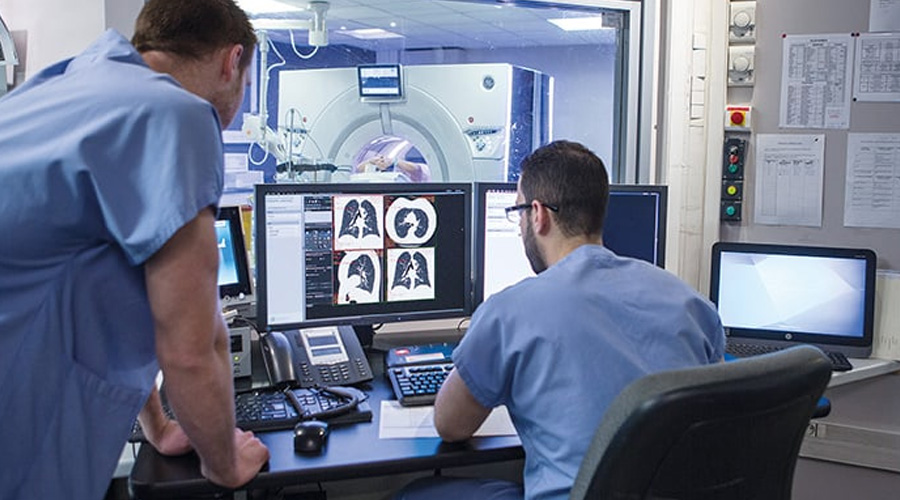
AI-Powered Diagnosis: Revolutionizing Healthcare with Precision MedicineAI-Powered Diagnosis: Revolutionizing Healthcare with Precision Medicine Artificial Intelligence (AI) is transforming the healthcare industry, and one of its most significant applications is in the field of diagnosis. AI-powered diagnostic tools are revolutionizing healthcare by enabling personalized and precise medical decision-making. Precision Medicine: The Future of Healthcare Precision medicine aims to tailor medical interventions to the unique characteristics of individual patients. By considering genetic, environmental, and lifestyle factors, healthcare providers can develop treatments that are more effective and have fewer side effects. AI’s Role in Precision Medicine AI algorithms can analyze vast amounts of medical data, such as patient records, genetic information, and imaging scans. This data can be used to identify patterns and correlations that would otherwise be overlooked by humans. As a result, AI-powered diagnostic tools can: * Improve diagnostic accuracy: AI algorithms can identify subtle patterns and abnormalities that may be missed by traditional methods, leading to earlier and more accurate diagnoses. * Personalize treatment plans: By analyzing patient-specific data, AI algorithms can help healthcare providers develop personalized treatment plans that are tailored to the patient’s unique genetic makeup and circumstances. * Predict disease risk: AI algorithms can identify individuals who are at high risk for certain diseases, allowing for preventive measures and early intervention. Benefits of AI-Powered Diagnosis The benefits of AI-powered diagnosis extend far beyond improved accuracy and personalization. These tools can also: * Reduce healthcare costs: By identifying diseases early and preventing unnecessary tests and procedures, AI-powered diagnosis can save healthcare systems significant expenses. * Increase patient satisfaction: Patients benefit from more accurate diagnoses, personalized treatments, and better health outcomes. * Accelerate drug development: AI algorithms can analyze clinical trial data to identify promising treatments and predict drug efficacy, speeding up the development of new therapies. Challenges and Considerations While AI-powered diagnosis has immense potential, it also faces some challenges and considerations: * Data collection and privacy: The use of AI requires the collection and storage of large amounts of patient data. Ensuring data security and privacy is crucial. * Algorithm development and validation: AI algorithms need to be developed and validated thoroughly to ensure accuracy and reliability. * Human oversight: AI algorithms should not replace human judgment but rather complement it. Healthcare providers must remain involved in the diagnostic process to interpret results and make final decisions. Conclusion AI-powered diagnosis represents a transformative force in healthcare. By enabling precision medicine, these tools are revolutionizing the way diseases are diagnosed and treated. With careful implementation and ethical considerations, AI can empower healthcare providers to deliver personalized and effective care, leading to improved patient outcomes and a healthier society.
Posted inNews